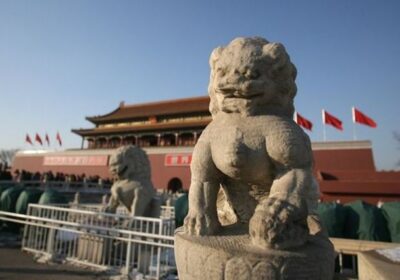>>REAL-TIME UPDATES IN THE WIRE. CLICK HERE<<<
China will continue to defer tax payments for smaller manufacturers as part of efforts to revive economic activity, according to an executive meeting of the State Council, China’s cabinet, on Tuesday.
The key to stabilizing the economy lies in ensuring the operations of market entities and in a bid to bail out market entities in the manufacturing sector that are currently facing mounting challenges, the executive meeting decided to defer some taxes for small and micro-sized manufacturing firms and self-employed people, according to the state broadcaster CCTV.
The tax deferral for four months starting September 1 amounts to 440 billion yuan ($63.20 billion), while the newly added tax credits for manufacturers will be refunded immediately after application, resulting in 32 billion yuan in tax refunds for the manufacturing sector over the remaining four months of the year.
A joint statement released by the State Taxation Administration and the Ministry of Finance on Wednesday also detailed the tax deferral plan.
Medium-sized manufacturing companies that have already been entitled to a 50% tax deferral and small and micro-sized manufacturers that have got a 100% deferral will see their deferral prolonged by an additional four months from September, according to the statement.
The push for renovation of equipment in weak areas in terms of economic and social development augurs well for boosting manufacturing demand and prompting a consumption rebound, said Premier Li Keqiang, who chaired the State Council meeting.
China will support commercial banks to extend medium and long-term loans for firms in manufacturing, services and social services industries, and smaller companies and self-employed households in other industries, to upgrade equipment in the fourth quarter, at an interest rate of no more than 3.2%, according to the meeting.
The People’s Bank of China, the country’s central bank, will offer special re-lending for 100% of the renovation-related loan principal, according to the meeting, and the relending quota was set at 200 billion yuan for one year and could be rolled over twice.
The meeting also stressed the need for stabilizing foreign trade and foreign investment, as well as the creation of a slew of new cross-border e-commerce pilot zones and the implementation of key foreign-invested projects.
The meeting stressed the need to support enterprises in retaining orders and expanding their market presence. All-out efforts should be made to secure energy and labor supply and logistics for foreign trade companies to ensure the delivery of contracts.
In addition, the cabinet approved the construction of the second phase of Zhangzhou nuclear power plant in East China’s Fujian province and the first phase of Lianjiang nuclear power plant in South China’s Guangdong Province.
It decided to streamline the regulations of the electronics industry, in a bid to lower institutional transaction costs and stimulate market vitality.

